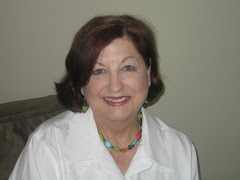I cannot understand some of the recent Supreme Court
decisions. Some of the justices seem to
have read another constitution than the one I have studied and treasured
throughout my academic life. The
interpretations about the political process beginning with the Citizens decision seem to negate my
ideas about equal rights. How can a
corporation be a person? When people are
ill, they seek medical help; they don’t get government bailouts. When people miss mortgage payments, they lose
their houses. When big banks lost money
on mortgage gambling, tax payers came to their rescue. They are too big to fail. People are too small to be saved?
How can money be speech? First of all, money is not free, and not
everyone has the same amount. Does that
mean that a full-time minimum wage earner making a little over $15,000 a year
can talk as loudly, metaphorically speaking, as Bank of America’s CEO whose
yearly compensation is $24.8 million?
When these figures are seen, even saying that money is speech is absurd. Mitch McConnell is the Senator of Kentucky,
and every time I’ve heard him equate money and speech, I am astounded as he
should know the reality of poverty’s hardships well. Kentucky is in the top five states in terms
of poverty. How can a representative of
my home state say, “Money is speech,” as he is wont to do, when he should know
what the out-of-work coal miner makes?
And finally, how could SCOTUS so weaken the Voting Rights
Act of 1968 by declaring that it is no longer as needed? At this point, over 20 Red States have
enacted new voting laws that make it difficult for inner-city residents to
vote, even if they have voted numerous times in the past. They have no need of a driver’s license,
which is required for voting in many states, even though they may have
numerous, verifiable photo ID’s. Some of the elderly either have never had a
birth certificate either because they were born at home or have long ago
misplaced the one that they had. Not in the
least surprising is that most of those for whom voting has been made more
difficult lean toward the Democrats. It
is absolutely loathsome when Republican governors like Florida’s Gov. Scott
shorten voting days and polling areas in Democratic-leaning neighborhoods,
especially after evidence of long waiting lines and vote times in the last
elections. Florida’s ballot is often
pages long, stuffed with amendments from the sublime to the ridiculous, and it
takes the conscientious voter more than a moment to cast a vote. Additionally,
his and other GOP governors’ moves to cut Sunday voting directly impacts the
African-American community who have long made voting the Sunday before election
day—Souls to the Polls--a tradition of long standing. And Sunday voting also aids those who work
six days a week and don’t get leisurely lunch breaks to do with as they
please. To deliberately make it
difficult for certain voters and not others is discriminatory without a doubt.
When I watched John Lewis and others beaten and gassed as
they peacefully walked across the Pettus Bridge in 1968, I wept. And then, when they and many, many others
completed that march all the way to Selma, I was so very hopeful that equal
rights was going to become a reality.
And then followed the passage of the Voting Rights Act thereafter; it made
me believe that the US had finally become what it could be, what it was meant
to be. I now feel very naïve because I
really believed that was that; all could vote.
It never occurred to me that this could be undone!
What can you and I do about it? Register to vote, no matter how inconvenient
they make it for you. Start early and
find people to help you if you run into obstacles. Lobby your elected officials to extend voting
times and dates. Shame them on social
media if you must, but do make your views known. Money is loud but so is persistence,
especially if you organize others to make noise with you. Do vote in all local and state
elections. The Democratic base turns out
in presidential elections but is less faithful in off-year and local
elections. When we don’t vote, we cede
our voice to others who don’t have our concerns for the environment, health
care, the social safety net, women’s choice, etc. Our failure to vote in 2010 state elections
allowed Republicans to take more gubernatorial races than ever before in
history. That not only resulted in
giving them power to gerrymander to their party’s advantage as well as to redo
voting rights’ laws.
And so here is the take-away: SCOTUS rulings have made
the rich and powerful more rich and powerful.
SCOTUS has made it more difficult for some to vote. We, the people not rich and powerful in
money but in voice, need to vote and vote and vote and to make our voices heard
whenever and wherever. Tweet, Facebook,
e-mail, blog, write op-ed pieces. Old
school or new, do what it takes to reclaim your place in the political
spectrum.

No comments:
Post a Comment